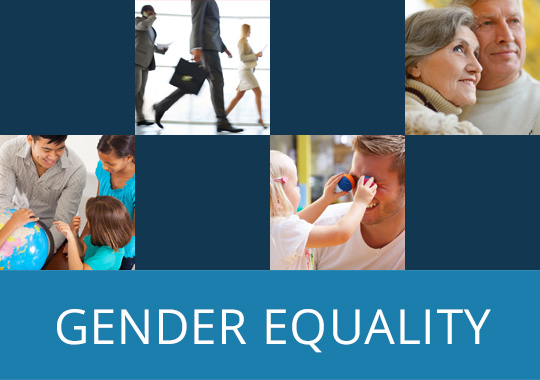At a glance
Equality between women and men

Although the legal status of women in Europe has undoubtedly improved during recent decades, effective equality is far from being a reality. Even if progress is visible (educational attainment, labour market participation, political representation), gender gaps persist in many areas, maintaining men in their traditional roles and constraining women’s opportunities to affirm their fundamental rights and assert their agency.
Women are still marginalised in political and public life, suffer discrimination in employment or difficulties in reconciling private, family and professional life, are paid less for work of equal value and find themselves victims of poverty and unemployment more often than men.
The most pronounced expression of the uneven balance of power between women and men is violence against women, which is both a human rights violation and a major obstacle to gender equality.





